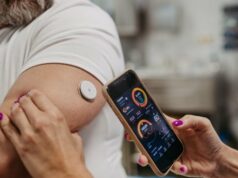You may have heard of the important role of vitamin D in people who have Coronavirus – but how much do we really know at the early stage of the virus?
What is Vitamin D?
Often known as ‘the sunshine vitamin’, vitamin D is actually a vitamin and a hormone, which can be made in the body.[1] Vitamin D regulates the amount of other important minerals in our body such as calcium and phosphate, both needed for healthy bones, teeth and muscles.
Vitamin D & Diet
There are two major forms of vitamin D which are vitamin D3 (cholecalciferol) and vitamin D2 (ergocalciferol). The main sources of vitamin D are sunlight exposure (where it is synthesised in the skin) and foods or dietary supplements. Between the months of April and September, skin synthesis is the main source of vitamin D for most people.[2] Vitamin D is found in modest amounts in some foods;
– Oily fish such a salmon, sardines and pilchards contain reasonable amounts.
– Red meat
– Egg yolks, meat and offal contain modest amounts but this can vary throughout the seasons
Vitamin D and Coronavirus
We know that individuals with diabetes are at higher risk of infections, especially pneumonia and influenza [2] and that people living with obesity (who have a body mass index (BMI) of greater than 40kg/m2) as well as those 70 years old and above should be shielding and staying home as much as possible.
A recent study concluded that attention to nutrition and protein intake is important for individuals with diabetes in times of COVID-19 and also that deficiencies of vitamins need to be corrected.[3]
Public health England guidelines state that the following groups are at risk of vitamin D deficiency and should take a 10 microgram supplement of vitamin D all year around:[3]
- People in institutions such as care homes
- People who always cover their skin when outside
- People whose skin has little or no exposure to the sun
Higher dose Vitamin D?
A recent Irish study led by Professor Rose Anne Kenny published in the Irish Medical Journal [4] called for immediate higher vitamin D supplementation for those in hospital, in nursing homes or those who are older.
Prof Kenny said: “Though we do not know specifically of the role of vitamin D in Covid-19 infections, given its wider implications for improving immune responses and clear evidence for bone and muscle health, those cocooning and other at-risk cohorts should ensure they have an adequate intake of vitamin D.”
Another group of researchers from the US have recommended a very high does of vitamin D for the first few weeks of infection (10,000IU/day), however, the team acknowledge the limitations of the study and say that further research is required before suggesting these very high supplementation levels for the general public. [5]
One more recent study had suggested that those with vitamin D deficiency may be more prone to infection (specifically respiratory infections) from the Coronavirus and that vitamin D could work as a therapeutic option for treatment of the virus. It is important to note this is a very early recommendation and based on bovine studies, therefore cannot be translated to humans yet. [6]
It should be noted that an expert panel in the UK 2016 Vitamin D report evaluated the evidence and did not find strong enough evidence to support recommending vitamin D supplements to reduce the risk of respiratory tract infections.
Should I supplement?
If you are shielding and not getting sunlight, the government recommendation is that you should take an over the counter vitamin D supplement of 10 micrograms every day. If you have had very low vitamin D in the past, you may need a higher dose – speak to your pharmacist or doctor for advice on this.
As for the higher doses of vitamin D specifically to prevent or treat Coronavirus, the evidence so far is very limited and higher dose recommendations cannot be made yet. If you are unsure or want to take a higher dose then you should discuss this with your doctor or pharmacist.
(function(d, s, id) {
var js, fjs = d.getElementsByTagName(s)[0];
if (d.getElementById(id)) return;
js = d.createElement(s); js.id = id;
js.src = “http://connect.facebook.net/en_US/sdk.js#xfbml=1&version=v2.4”;
fjs.parentNode.insertBefore(js, fjs);
}(document, ‘script’, ‘facebook-jssdk’));
Source link








